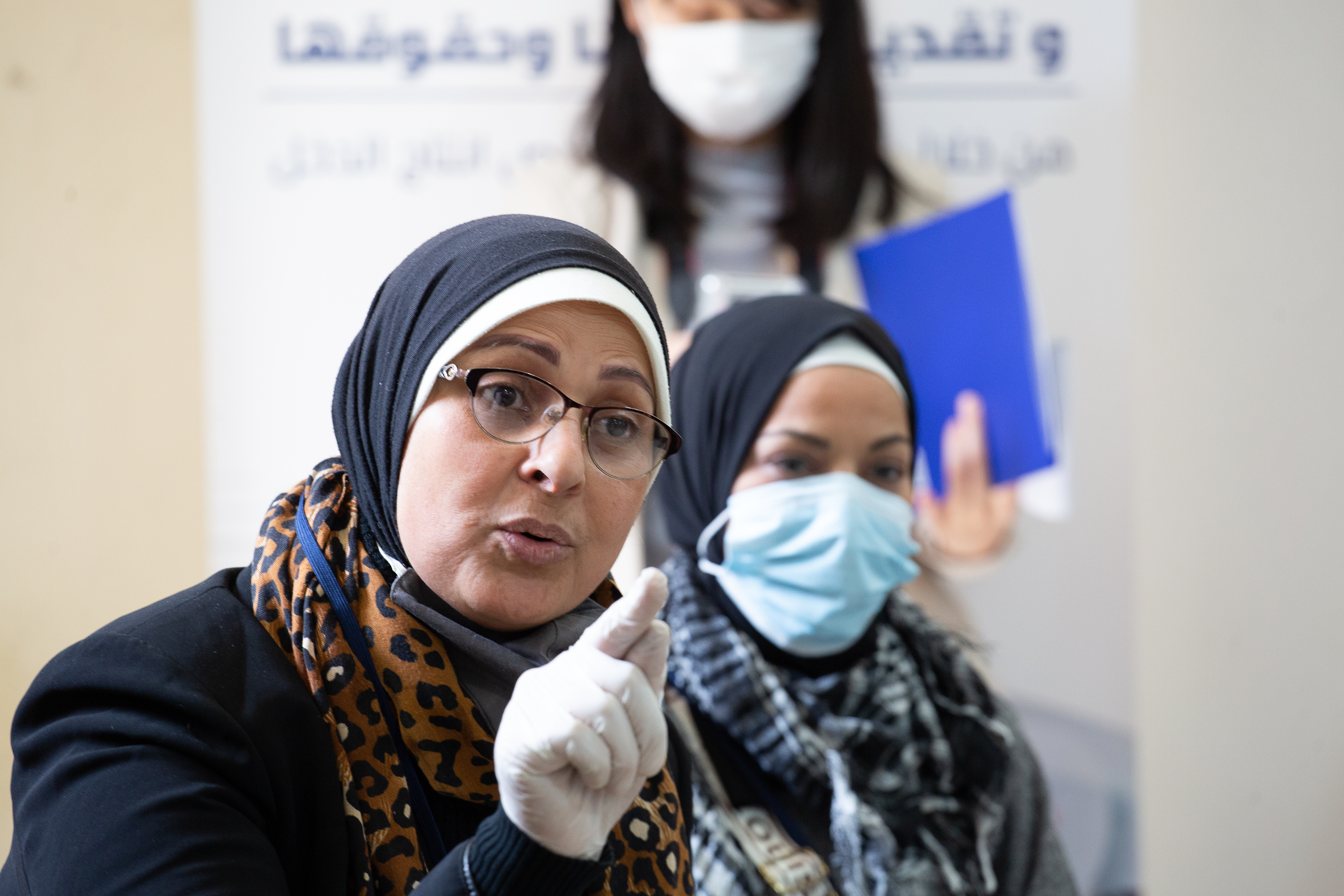From Where I Stand: “We need to raise our children believing that women’s reproductive health is not a taboo”
Date:
Itab Bayoud, 46, a Lebanese woman and mother of four has dedicated her life to caring for her family. Determined to gain independence and help make ends meet, she took a job with the social enterprise Roof and Roots in Jabal Mohsen, Tripoli, which was starting a new line producing quality and affordable menstrual hygiene products. Trained as a manufacturer, Itab reflects on her work and challenging social taboos around women’s reproductive health.

![]()
The economic crisis has hit everyone living in Lebanon hard and has hit women the hardest. With prices increasing, going out or buying anything that is not essential has become a luxury I can no longer afford. I am no longer able to afford new clothes for my children, or some of the materials they need for school. Instead, I just focus on having enough money to buy the food we eat. My husband works as a porter, but his salary is not enough to cover our most basics expenses. It hurt me to listen to my kids ask for, and need things, that I can not afford to give them.
Amongst other cuts we had to make to get by were disposable menstrual hygiene products, which affected my two daughters. We could not afford them, particularly as the costs were continually increasing. At first, I began by asking my daughters to keep the sanitary pads in for longer hours before realizing it could lead to infections, then I tried using old cloth – which also came with hygiene risks.
As the crisis began, I started to see more and more women seeking jobs so that they could help their households. I had never worked before and never really thought I stood a chance to get a job as I have no qualifications. When my neighbor told me that the sanitary pads manufacturing project was offering paid jobs, I decided to try and join. I was selected and during an initial training phase, we were taught how to operate the machines that produced the different parts of the pads, as well as the steps needed to store them safely.
This job provided me with the financial independence I have always aspired for. It also helped me psychologically. I was desperate and taking antidepressants. The training and the work took me away from the house, where things were tense, and introduced me to new people.
Financial independence has given me confidence and self-worth. I used to think I lived for my husband and my children. Now I can acknowledge that my needs are important too. I also met new friends who I will keep for a lifetime, many of whom are facing similar problems helped me realize I am not going through this alone. With the money I have made, I saved and bought a refrigerator, which we did not have before, and I have been able to provide for myself and my children.
I am aware of the stigma around menstruation and women’s reproductive health. As I worked on manufacturing the sanitary pads, I became much more mindful of period poverty and how it was affecting many women. Unfortunately, most of them are too afraid to speak about it because it is deemed shameful.
Growing up, my mother would not tell my father that I had my period. Instead, she would ask him for money “to get Itab something private”. I am convinced that menstruation is not a shame. We need to raise our boys and girls into believing that women’s reproductive health is not taboo.
I never wanted to become a housewife. I had so many dreams, and one of them was to advocate and fight for women. I dreamed of leading a feminist action. With my newly built confidence, I now believe that it is never too late to achieve my dream!”
Itab is one of 20 women who received training sessions on the production of sanitary products at a manufacturing unit led by Roof and Roots social enterprise in Jabal Mohsen, Tripoli, with the support of NGO ACTED and UN Women and funded by the Government of Japan, to address women’s increased need for safe and affordable hygiene products, in light of Lebanon’s soaring economy and the rise of period poverty. Under the same project, 100 other women were trained in marketing. The women manufacturers produced an initial batch of 13,500 packs of menstruation items by March 2022, which were sold through door-to-door sales by women participating in the project, with a percentage of revenue distributed to vulnerable women residing in the area.
Itab’s story illustrates the importance of achieving Sustainable Development Goal (SDG) 5 on gender equality and the empowerment of women; and SDG 10, which calls for reducing inequalities in income as well as those based on age, sex, disability, race, ethnicity, origin, religion or economic or other status.